The tool user, provided the tool is made well, need not, and indeed should not, know anything about the tool
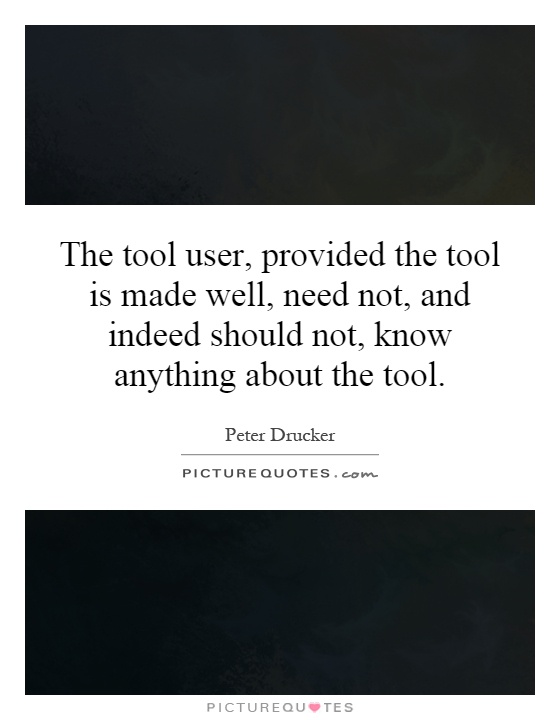
The tool user, provided the tool is made well, need not, and indeed should not, know anything about the tool
Peter Drucker, a renowned management consultant and author, emphasized the importance of effective tools in achieving organizational success. In his work, Drucker often highlighted the role of tools in enhancing productivity and efficiency in the workplace. One of his notable quotes is, “The tool user, provided the tool is made well, need not, and indeed should not, know anything about the tool.”Drucker’s statement underscores the idea that a well-designed tool should be intuitive and user-friendly, requiring minimal knowledge or training for its effective use. In other words, the tool should be so well-crafted that it can be easily understood and utilized by individuals without the need for extensive technical expertise. This concept aligns with Drucker’s belief in the importance of simplicity and practicality in management practices.
By emphasizing the importance of well-designed tools, Drucker highlights the role of technology in driving organizational performance. In today’s fast-paced business environment, organizations rely heavily on various tools and technologies to streamline processes, improve decision-making, and enhance overall efficiency. However, the effectiveness of these tools ultimately depends on their usability and functionality.
Drucker’s assertion that users should not need to know anything about the tool underscores the idea that tools should be designed with the end-user in mind. A tool that is overly complex or difficult to use can hinder productivity and create unnecessary barriers for employees. On the other hand, a well-designed tool that is intuitive and user-friendly can empower individuals to perform their tasks more efficiently and effectively.

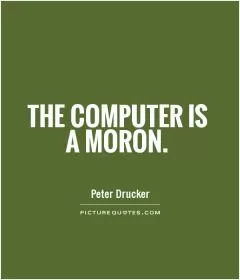

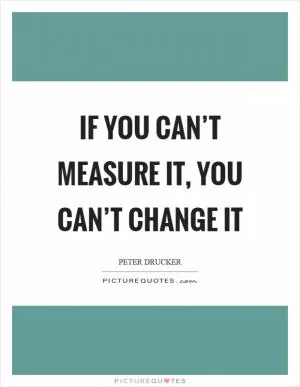





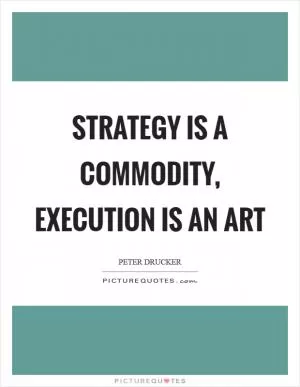

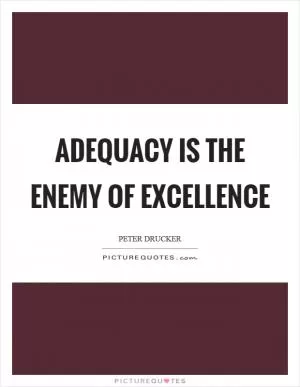
 Friendship Quotes
Friendship Quotes Love Quotes
Love Quotes Life Quotes
Life Quotes Funny Quotes
Funny Quotes Motivational Quotes
Motivational Quotes Inspirational Quotes
Inspirational Quotes